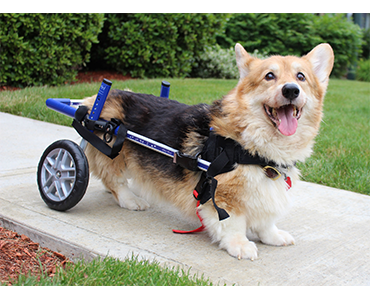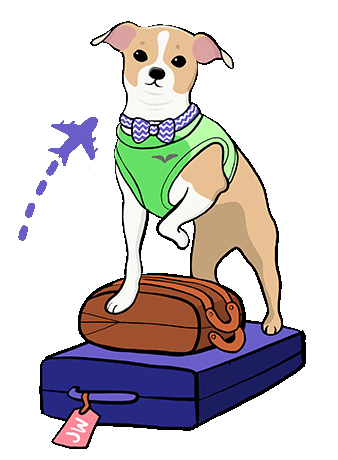Whether your pet is a frequent flyer, or a first timer, check out these helpful tips before your pet’s next boarding reservation!
- AGE: Geriatric and very young pets may not do well in a high stress environment. Good or bad, stress is still stress! With all the excitement of new sights and sounds, some pets are easily over stimulated.
 Courtesy of DVM360
Courtesy of DVM360
- CHRONIC ILLNESS/SPECIAL NEEDS: Pets with illnesses requiring long term medications, and pets with disabilities may need extra care, or more supervision than a standard boarding facility offers.
- FIRST TIMERS: Consider day boarding, prior to an overnight stay. This allows your pet to become familiar to the surroundings of the boarding facility, as well as the staff.
- CALM THE NERVES: Ask your veterinarian about products to calm nerves before and during your pet’s boarding stay.
- UPDATE VACCINES: Call the boarding facility to find out which vaccines are required to board your pet. A quick call to your vet can tell you your pet’s vaccine status. If your pet is overdue for a required vaccine, it is ideal to update two weeks prior to boarding.
- EMERGENCY INFO: Before leaving your pet at the the Pet Keepers cat and dog boarding kennel, make sure to review all of your emergency contact information!











I have two dogs with special needs. Thank you for mentioning that chronic illness/special needs and even the age of the pet make a difference in a pet boarding experience. It is not a one size fits all experience. Older dogs do not do well in a high-stress environment. Some pets may need extra care or more supervision. A highly reputable pet boarding facility is the place to go for the love of our dogs.
I appreciate your tip on writing down some of the information that is crucial for dog caretakers in order for them to monitor your dog properly. I’m going on a business trip soon and I can’t bring my dog with me. He’s a fragile, thirteen-year-old dog who is prone to sickness. So it’s very important to me that he’s handled with extra care. I’ll make sure to keep in mind your tip and find dog boarding services near my area.
Thanks for sharing that since a short call to your veterinarian can inform you of your pet’s immunization status, contact the boarding facility to learn which vaccinations are necessary to board your pet. My friend’s looking for pet boarding tips since she’s planning on leaving her poodle at a pet daycare once she starts to come into her office. She’s been working from home all her life so this is the first time she’d have to leave her dog’s care to someone else.
I’ll be away on a business trip for four days starting next Monday, so I need someone to take care of my dog while I’m out of town. I appreciate that you told us to update our vaccines after giving the boarding facility a call to ask which vaccines are required to board your vet. I’ll keep this in mind once I find a dog daycare to consider boarding for my dog soon.
I appreciate your suggestion to write down some of the information that dog caregivers need to monitor your dog correctly. I’m going on a business trip soon and won’t be able to bring my dog. My dog just came to our house and separated from his mother, so the staff must handle him cautiously. I’ll remember your advice and look for dog boarding services in my area.
I like that you said to contact the boarding facility to find out which vaccinations are needed to board your pet. I think this will be helpful for my boyfriend who will fly with his cat to another country. I’ll make certain to share these useful cat boarding pointers with him so he can have insights about its process, thanks!